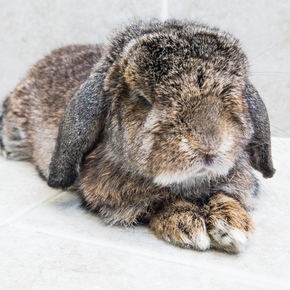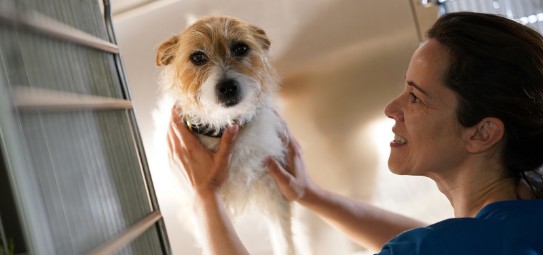
Teddington veterinary surgeon shares how to spot rabbit pain
September 21, 2022
Just like many animals, rabbits are notorious for being able to hide pain and illness very well. Many symptoms of pain or illness are difficult to spot as rabbit owners, but there are a few common signs you can look out for to monitor any changes in their health.
With September being Animal Pain Awareness Month, the team at Alpha Veterinary Surgery have some advice for rabbit owners on how to spot common rabbit health concerns at home in between annual and 6-monthly vet checks.
If you have any concerns about your rabbit’s health right now, call us for advice on 0208 943 2303.
9 common signs of aches and pains in your rabbit
Vet Darren Partridge at our Teddington practice lists common signs that may show your rabbit is in pain below:
- Sudden changes in appetite, may refuse to eat
- Teeth grinding
- Depression and lack of interest
- Reduced faecal matter
- Increase in Caecotrophs present (Dark sticky poops)
- Respiratory changes
- Behaviour changes
- Discharge from eyes
- Head tilt
These symptoms could be due to a variety of issues. For example, your rabbit may have chronic joint pain, tummy pain, dental pain, or many other diseases or injuries.
If your rabbit’s pain is diagnosed to be a musculoskeletal issue, we have a pet physiotherapist who may be able to help. Pet physiotherapy can help with a range of ailments and conditions by supporting the body and aiding rehabilitation; this isn’t limited to cats and dogs. Talk to one of our vets about whether physiotherapy may be appropriate for your pet rabbit – contact us.
Learn more about pet physiotherapy
Darren explains that you should not overlook any symptoms whatever age your pet is, especially as rabbits can become poorly very quickly when they stop eating. This is because rabbits must continuously graze to help keep their gut healthy. If pain reduces their appetite this will affect their gut health and cause them to become more unwell.
By regularly checking over your rabbit at home, you can help monitor for changes but also learn what is normal for them. Darren advises performing this short Rabbit Checklist below regularly at home to spot any irregularities:
6-point Rabbit Checklist
- Nose – clean, clear, and subtly moist.
- Eyes – bright and clear; no discharge or redness around the eyes.
- Mouth – healthy looking teeth with no breakages, overgrowth, or sharp spurs.
- Ears – clean and clear with no discharge, swelling, nasty smells, or constantly scratching.
- Coat/skin – shiny healthy coat with no dandruff, parasites, bald patches, lumps, or bumps. Well-groomed with no faeces stuck to their coat or wet patches from urine.
- Weight – healthy lean weight.
If you spot any changes on your rabbit that you are concerned about, it is best to get them checked by Darren or any of the Vets at our Stanley Road surgery. The chances are it is something simple, but it is better to get it looked at and get your rabbit the treatment they need.





